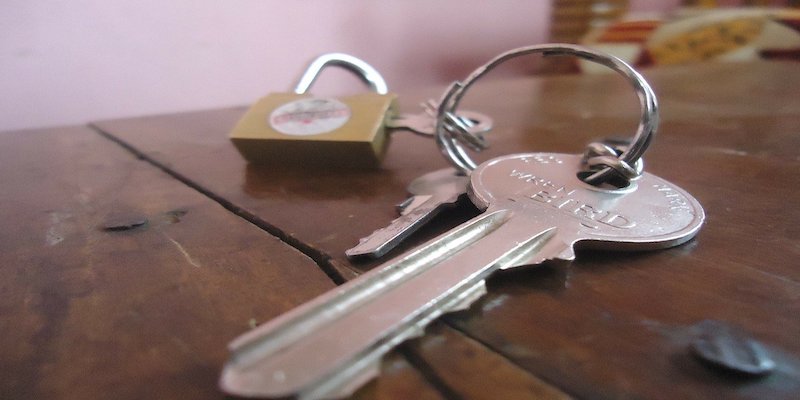Going through divorce proceedings is difficult enough, without the added pressures of worrying about money. Despite this, it is essential that you look after your financial future and ensure you are able to continue living a similar standard of life as a single person.
Whether you are trying to keep hold of your own assets or are concerned that your ex partner may be trying to hide what they own, you need to be aware of how to protect your finances in a divorce. Here are our thoughts on what you should and should not do.
How Finances Are Handled

It is a common misconception that dividing your finances is a simple case of “who owns what”. If you are not in a position to mutually decide with your ex spouse who will get what after the divorce, you will need to ask a Court to step in.
When deciding how finances will be split, the Court will look at a number of factors for each person. These include:
- How long the marriage lasted
- The standard of living enjoyed
- Income and earning capacity
- Conduct
- Financial obligations
- Physical or mental disabilities
It is important to understand that this is not an exhaustive list and there are other factors that may be considered by the Court. As a result, you may end up being entitled to more than you originally perceived. This is why we would recommend you seek professional advice before agreeing to anything – even if your divorce is amicable.
How to Protect Your Finances in a Divorce

When attempting to secure your financial future after a divorce, there are a number of options that you can take. We would recommend that you explore all of those which apply to you, so you have the best possible chance of protecting your assets.
Identify Who Owns What
Despite the fact that ownership is not the be-all-and-end-all, it is still important for you to work out what assets are owned by you, your ex and both parties. If there is something in your former spouse’s name that might impact your financial settlement (such as a house), this will need to be brought up in divorce proceedings to ensure it is not sold without your knowledge or consent.
Securing Your Home
In the majority of divorce proceedings, the most valuable asset will be the family home. There are a number of ways you can protect the property and your finances that depend on whether it is held in a single or joint name and if you own your home or are renting.
Should the property be solely in your ex spouse’s name, it is important to register Matrimonial Home Rights with the Land Registry. Doing so will ensure that the home cannot be sold without your prior consent. If the property is in joint-ownership and you are considered to be “joint-tenants”, you may want to change to “tenants-in-common” – as this will prevent your stake from automatically going to your former partner in the event of your death.
It is also important to notify your mortgage provider or landlord that you are divorcing, so either your or your former partner’s name can be taken off associated documentation. Failing to carry out this step will mean you are still liable for payments, even if you are no longer living there. This means that if you move out and your ex spouse does not pay the mortgage or rent, you will become responsible for the costs.
Bank Accounts, Credit Cards and Loans
During the course of your marriage, it is likely that you have opened bank accounts in both your names and have jointly accrued debts – either by credit cards or loans. Because of this, it is important to notify your bank or loan provider of your divorce.
If you have a joint bank account, there are additional steps you can take to secure your finances during a divorce. The first option is to ensure that any withdrawals must be agreed by both parties. You can also request to freeze the account, though the two of you will need to agree to unfreeze it again.
The final point to consider is that you may want to set up a separate account in your own name (if you have not done so already) and ensure that your wages and other payments go directly into the new account. This is especially important during an acrimonious divorce, as your former partner may block you from taking your own funds out of a joint account.
Clean Break Orders
The final option you could take is to automatically end any financial obligation (including maintenance) to your former spouse. This is done by way of a Clean Break Order.
This type of Order is obtained through the Courts and decrees that neither party will be able to make a financial claim against the other. If you think this may be the right course of action for you, be sure you take expert legal advice before you proceed.
Can I Hide My Finances?

It is quite common for one party to try and hide their finances from their former spouse, especially if the divorce is less than civil. This is certainly not a course of action we would recommend, since the Courts have far-reaching powers to be sure that all assets are accounted for – and can even order that money or property that has previously been moved is recovered.
What’s more, if you are caught trying to hide assets, this may severely impact the financial settlement you will be given at the end of the divorce proceedings. Even if you do manage to successfully keep property or money hidden, the divorce case can be reopened and a new Court Order issued if your deception is ever discovered.
If you suspect your former spouse may be trying to hide their assets, it is important that you seek the advice of a solicitor as soon as possible. This is because there are several steps you can take to prevent this, including:
- Section 37 of the Matrimonial Causes Act 1973: Your solicitor can apply for an order under this Act to prevent assets from being moved, or return things that have already been hidden
- Freezing Order: Prevents the disposal of assets both in the UK and abroad, plus those which have yet come to fruition – such as a pension
- Search Orders: These can be extremely effective in searching out hidden assets, but are rarely used due to their high costs
What You Should Not Do

Other than attempting to hide your assets, there are a few other things you should not do if you want the best chance of protecting your assets during a divorce. These include:
- Leave the family home: Unless it is essential that you leave, such as in cases of domestic violence, it is often wise to stay in your family home, as not doing so may give your former spouse a greater claim to the property – especially if you have children.
- Move in with a new partner: If you do decide to leave the family home, it is also not advisable to move in with somebody new. This is because the Court will consider your cohabitee to be a potential resource. You will therefore be forced to disclose your partner’s financial situation and could end up with a reduced settlement as a result.
- Open personal finance documents: This may be especially tempting if you believe your ex partner is trying to hide assets, however doing so could see you in breach of the law. On top of this, the evidence you gather will be inadmissible in Court
- Fail to seek specialist advice: Even if your divorce is amicable, it is still essential to get professional guidance. As we mentioned previously, you may be entitled to more than you initially think
If you are wondering how to protect your finances in a divorce, Shams Williams can help. Our expert team of solicitors will guide you through the entire process and ensure you walk away with the best settlement possible.






